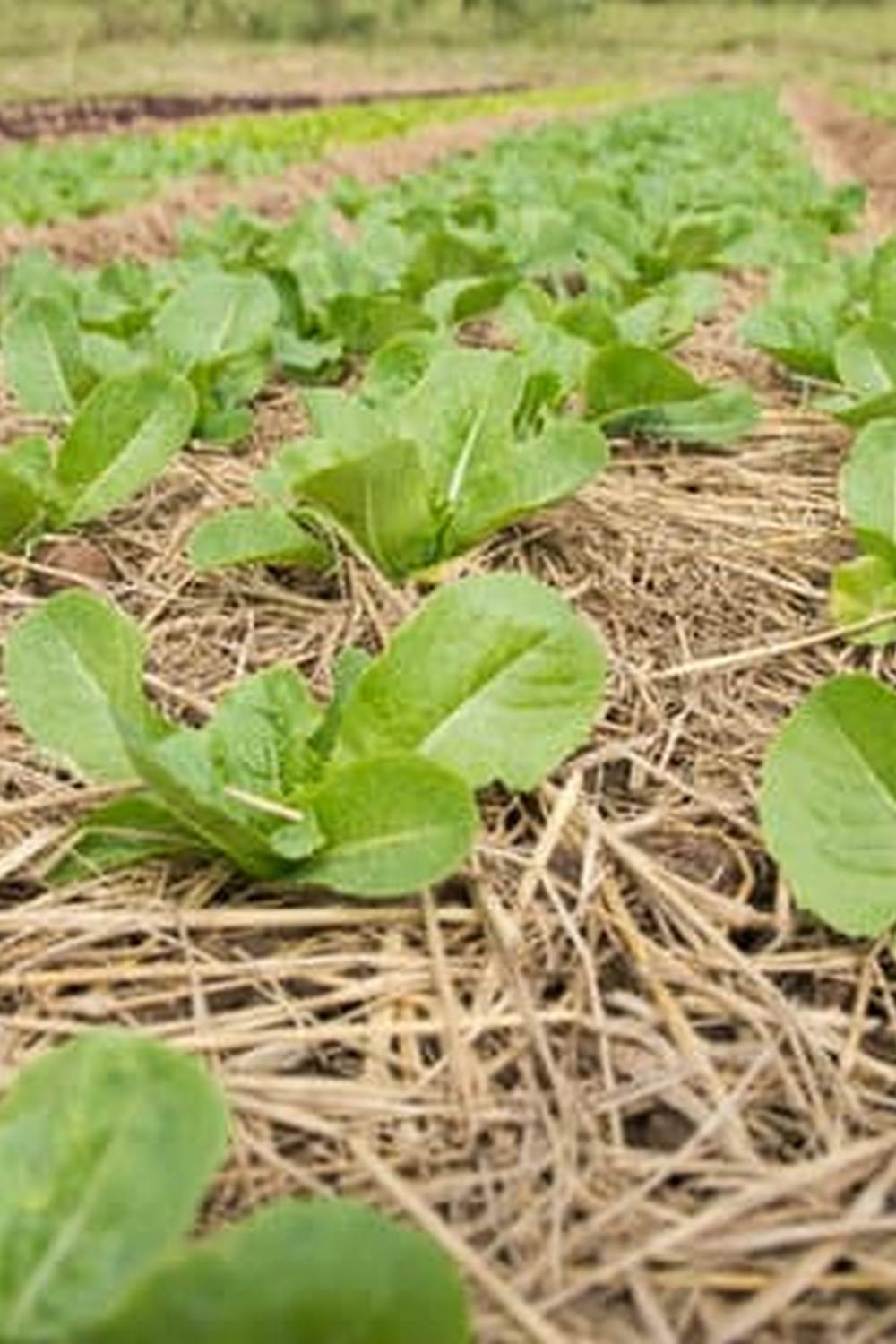Are you wondering, “do vegetable gardens in the front yard hurt value?” As the trend of front yard vegetable gardens grows, so does the debate over their impact on property value. Some argue that they enhance curb appeal and promote sustainability, while others worry about the effect on neighborhood aesthetics. In this article, we will explore the pros and cons of front yard vegetable gardens and examine whether they truly affect the value of a property.
Front yard vegetable gardens have become increasingly popular as more homeowners seek to grow their own produce and reduce their environmental footprint. However, this trend has sparked controversy, with some claiming that these gardens can detract from a home’s value due to aesthetic concerns and neighborhood perceptions. It’s important to weigh the potential benefits against these drawbacks in order to determine whether front yard vegetable gardens are advantageous or detrimental for property owners.
In this article, we will delve into the advantages of having a front yard vegetable garden, such as increased access to fresh produce and sustainable living practices. We will also consider the potential disadvantages, including concerns about neighborhood aesthetics and how these gardens may be perceived by prospective buyers. Additionally, we will review research data and studies that have been conducted on this topic to provide a comprehensive analysis of whether front yard vegetable gardens truly impact property value.
Pros of Front Yard Vegetable Gardens
Front yard vegetable gardens have gained popularity in recent years as people become more interested in sustainable living and access to fresh, homegrown produce. One of the main benefits of having a vegetable garden in the front yard is the increased accessibility to fresh fruits, vegetables, and herbs. Homeowners can simply step out of their homes and harvest ingredients for their meals, reducing the need to rely on store-bought produce that may have been shipped long distances.
In addition to providing a convenient source of fresh food, front yard vegetable gardens contribute to sustainability efforts. Growing food at home reduces the carbon footprint associated with transportation and packaging, and also minimizes reliance on commercial agriculture practices that can be harmful to the environment. By cultivating a garden at home, individuals can take an active role in promoting environmentally friendly practices and reducing their impact on the planet.
Furthermore, front yard vegetable gardens can serve as educational tools for children and adults alike. Families can involve children in the process of planting, tending to, and harvesting crops, teaching valuable lessons about where food comes from and how it grows. This hands-on experience can lead to greater appreciation for nature and a deeper understanding of the effort required to produce food, ultimately promoting a more sustainable mindset.
| Aspect | Benefit |
|---|---|
| Accessibility | Increased access to fresh produce |
| Sustainability | Contribution to environmental efforts |
| Education | Valuable learning experiences for all ages |
Cons of Front Yard Vegetable Gardens
Front yard vegetable gardens have become a popular trend for homeowners looking to embrace sustainability and have easy access to fresh produce. However, there are some potential drawbacks to consider when it comes to installing a vegetable garden in the front yard.
One of the main concerns is the aesthetic impact that a vegetable garden can have on the overall look of the property. Some individuals may find front yard gardens to be unsightly and believe they detract from the curb appeal of the home.
In addition to aesthetic concerns, there are also neighborhood perceptions that come into play. Some people in the community might view front yard vegetable gardens as unappealing or out of place in a residential area. This could lead to negative assumptions about the upkeep and maintenance of the property as a whole, possibly impacting how potential buyers or neighbors view the home.
Another potential drawback of front yard vegetable gardens is the amount of space they require. In smaller yards, a vegetable garden may take up valuable real estate that could otherwise be used for landscaping or recreational purposes. This can limit the functionality and versatility of the outdoor space, which could be seen as a disadvantage by some homeowners.
| Drawback | Impact |
|---|---|
| Aesthetic concerns | Potential negative impact on curb appeal |
| Neighborhood perceptions | Possible negative assumptions about property upkeep |
| Space limitations | Possible restriction on outdoor functionality |
Research and Statistics
Front yard vegetable gardens have become a popular trend among homeowners, with many embracing the idea of growing their own produce. However, this trend has sparked a debate regarding its impact on property value. It’s important to explore the research and statistics that have been conducted to determine whether front yard vegetable gardens indeed hurt property value.
Several studies have been carried out to assess the impact of front yard vegetable gardens on property value, and the findings are quite interesting. A study conducted by the HomeGardenShed.com found that homes with well-maintained front yard vegetable gardens actually had a slight increase in property value compared to homes without such gardens.
Furthermore, research from the National Gardening Association revealed that properties with edible landscaping, including front yard vegetable gardens, could potentially sell for 7% more than those without.
In addition to these studies, real estate listings data also provide valuable insights into the impact of front yard vegetable gardens on property value. Listings featuring front yard vegetable gardens in desirable neighborhoods often attract potential buyers who appreciate sustainable living and access to fresh produce.
This indicates that there is a growing market for homes with such features, which may positively influence property value. However, it’s important to note that poorly maintained or unkempt vegetable gardens may have the opposite effect and detract from property value.
Real Estate Perspective
When it comes to the impact of front yard vegetable gardens on property value, it’s essential to consider the perspective of real estate experts. These professionals have a deep understanding of the housing market and what factors can influence the value of a home. By interviewing real estate experts, we can gain valuable insight into how front yard vegetable gardens are perceived in the real estate world.
Factors Considered by Real Estate Experts
Real estate experts take various factors into account when assessing the value of a property. These include location, size, condition, and curb appeal. Front yard vegetable gardens can be seen as an attractive feature for some buyers who appreciate sustainable living and access to fresh produce. However, others may view them as a maintenance burden or detract from the overall aesthetics of the property.
Expert Opinions on Property Value
In interviews with real estate experts, opinions on how front yard vegetable gardens affect property value vary. Some believe that a well-maintained and thoughtfully designed garden can enhance curb appeal and contribute positively to the overall value of a home. Others caution that an unkempt or haphazard garden may have the opposite effect, potentially impacting resale value negatively.
Advice for Homeowners
Real estate experts often advise homeowners to consider their specific neighborhood and target buyer demographic when deciding whether to install a front yard vegetable garden. It’s important to strike a balance between personal preferences and marketability. By consulting with local real estate professionals, homeowners can make informed decisions about sustainable landscaping that adds value to their property rather than detracts from it.
Aesthetics and Curb Appeal
Front yard vegetable gardens can be a beautiful and practical addition to any home, but it’s important to consider how they may impact the overall aesthetics and curb appeal of the property. Here are some key design aspects to explore when considering a front yard vegetable garden:
- Layout: The layout of the garden can greatly affect its aesthetic appeal. Consider using geometric patterns or raised beds to create an organized and visually appealing design.
- Plant Selection: Choosing a variety of colorful vegetables, herbs, and flowers can add vibrancy and visual interest to the garden. Incorporating different textures and heights can also create a dynamic and attractive display.
- Maintenance: A well-maintained garden is essential for preserving its appeal. Keeping the garden tidy, weeding regularly, and ensuring that plants are healthy and thriving will contribute to a visually pleasing landscape.
It’s also important to consider how the front yard vegetable garden integrates with the overall design of the home and property. Here are some tips for seamlessly incorporating a vegetable garden into the landscape:
- Consider using natural barriers such as hedges or low fencing to define the space and create a sense of separation from the rest of the yard.
- Integrate decorative elements such as trellises, planters, or ornamental features to add visual interest and enhance the overall design of the garden.
- Be mindful of scale and proportion, ensuring that the size of the garden complements the size of the property and doesn’t overwhelm or detract from other landscaping features.
When thoughtfully designed and maintained, front yard vegetable gardens have the potential to enhance curb appeal while providing homeowners with access to fresh produce. By paying attention to design aspects such as layout, plant selection, maintenance, and integration into the overall landscape, homeowners can create an attractive front yard vegetable garden that adds value to their property.
Tips for Maximizing Value
When it comes to maintaining a front yard vegetable garden in a way that adds value to your property, there are several key tips to keep in mind. By following these guidelines, homeowners can ensure that their gardens not only provide fresh produce but also enhance the overall appeal of their homes.
Choose Your Plants Wisely
One important tip for maximizing the value of your front yard vegetable garden is to choose your plants wisely. Opt for vegetables and herbs that are not only productive but also visually appealing. Consider incorporating colorful varieties of tomatoes, peppers, and lettuces, as well as vibrant herbs like basil and parsley. By selecting aesthetically pleasing plants, you can create a garden that adds visual interest to your front yard.
Maintain Tidy and Well-Designed Beds
Another crucial aspect of maximizing the value of a front yard vegetable garden is maintaining tidy and well-designed beds. Keep the garden area neat and free from weeds, and consider edging the beds with attractive borders or materials such as stone or brick. Additionally, incorporating raised beds or other design elements can help bring a more polished look to the garden.
Harmonize With Your Home’s Aesthetic
To ensure that your front yard vegetable garden enhances rather than detracts from your property’s value, it’s important to harmonize it with your home’s aesthetic. Consider the style and color of your house when planning out your garden design. By selecting plants and features that complement the overall look of your home, you can create a cohesive and attractive outdoor space.
By following these tips for maintaining a front yard vegetable garden that adds value to your property, homeowners can enjoy both the practical benefits of fresh produce and the aesthetic appeal of a well-designed outdoor space. With careful planning and attention to detail, a front yard vegetable garden can be an asset rather than a liability when it comes to property value.
Conclusion
In conclusion, the debate over whether front yard vegetable gardens hurt property value is a complex issue with valid points on both sides. While there are certainly pros to having a vegetable garden in the front yard, such as increased access to fresh produce, sustainability, and potential cost savings, there are also drawbacks to consider. These may include aesthetic concerns and the impact of neighborhood perceptions.
Research and statistics on this topic have shown mixed results, with some studies suggesting that front yard vegetable gardens can actually increase property value by appealing to environmentally-conscious buyers and others indicating that they may have a negative impact on curb appeal and overall desirability. Real estate experts advocate for a balance between maintaining an attractive front yard while also incorporating sustainable elements like vegetable gardens.
At the end of the day, homeowners should carefully consider their own circumstances and goals when deciding whether to plant a vegetable garden in their front yard. With proper planning and maintenance, it is possible to have a well-maintained and aesthetically pleasing front yard vegetable garden that adds value to a property. Ultimately, it’s about finding the right balance and creating an inviting outdoor space that meets both practical needs and appeals to potential buyers or neighbors.
Frequently Asked Questions
Is It OK to Grow Vegetables in Front Yard?
It is absolutely okay to grow vegetables in the front yard! Many people are embracing the concept of “foodscaping,” which involves growing edible plants in the front yard to promote sustainability and self-sufficiency.
Should I Turn My Front Yard Into a Garden?
Turning your front yard into a garden can be a fantastic idea, especially if you have the space and desire to cultivate your own fruits, vegetables, or flowers. This not only adds aesthetic beauty but also promotes environmental health.
Is It Bad to Have a Garden Against the House?
Having a garden against the house can potentially pose some issues if not properly planned and maintained. It is crucial to ensure proper drainage, use materials that won’t damage the house, and prevent pests or water damage from affecting the structure.

If you’re looking to get into vegetable gardening, or are just looking for some tips on how to make your current garden better, then you’ve come to the right place! My name is Ethel and I have been gardening for years. In this blog, I’m going to share with you some of my best tips on how to create a successful vegetable garden.





